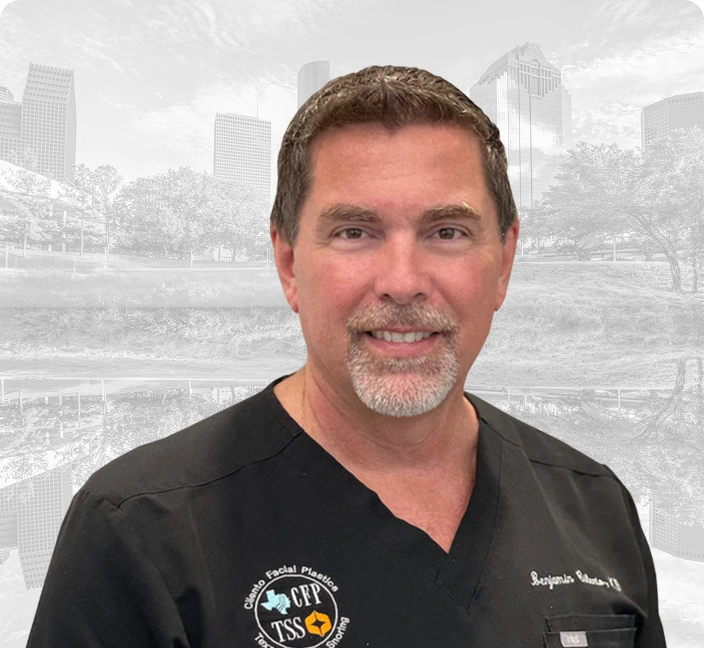Key Takeaways
- Chronic sinusitis is a long-lasting inflammation of the sinuses, causing persistent symptoms that last for at least 12 weeks.
- Recognizable symptoms of chronic sinusitis include nasal congestion, facial pain, sinus pressure, and a reduced sense of smell.
- Triggers for chronic sinusitis range from allergies to structural nasal problems.
- Consulting a doctor is crucial when symptoms persist, recur, or if you experience severe discomfort.
- Effective treatment options include medication, home remedies, and in some cases, surgery.
Breaking Down Chronic SinusitisBreaking Down Chronic Sinusitis
Imagine feeling like you have a cold that just won’t go away. That’s what chronic sinusitis can feel like – a constant companion that overstays its welcome. It’s more than just a stuffy nose; it’s a condition that can affect your daily life and requires understanding and proper management.
What Is Chronic Sinusitis?
Chronic sinusitis is not just a fleeting illness; it’s a persistent inflammation of the sinuses that sticks around for 12 weeks or more, despite attempts at treatment. It’s like a guest who doesn’t know when to leave, causing discomfort and annoyance day after day.
Recognizing the Chronic Sinusitis Symptoms
The signs of chronic sinusitis are hard to miss once you know what to look for. Here’s what might be waving red flags:
Nasal congestion that makes breathing through your nose tough.
Facial pain and pressure that feels like a heavyweight is parked on your cheeks and forehead.
Postnasal drip, which can lead to a cough that’s worse at night.
Reduced sense of smell and taste, which can make your favorite foods taste bland.
These chronic sinusitis symptoms can significantly impact your quality of life, making it essential to address them directly.
Tackling the Problem: Treatment Strategies
Once you’ve been diagnosed, you’ll want to know how to alleviate the discomfort. Treatment for chronic sinusitis aims to reduce inflammation and drain the sinuses.
1. Corticosteroid Nasal Sprays
For many individuals with chronic sinusitis, especially those affected by allergic rhinitis, corticosteroid nasal sprays are often a first line of defense. These sprays help reduce inflammation within the nasal passages, easing congestion and improving airflow. They are effective for both allergic and nonallergic patients, offering targeted relief with minimal systemic side effects. Regular use can help control symptoms and prevent flare-ups when used as part of a long-term management plan.
2. Nasal Saline Irrigation
One of the most commonly recommended supportive therapies after diagnosing chronic sinusitis is nasal saline irrigation. This method involves rinsing the nasal passages with a saltwater solution to flush out mucus, allergens, and other irritants. While often used for chronic conditions, it’s also helpful in cases of viral sinusitis, as it can ease discomfort and help maintain sinus health without the need for medication. Saline irrigation is a safe and easy-to-perform treatment that can be used alongside other therapies.
3. Oral or Injected Corticosteroids
In more severe cases where inflammation is persistent, oral steroids or corticosteroid injections may be prescribed. These systemic treatments can be beneficial when nasal obstruction interferes with breathing or drainage. Although they are not typically used long-term, they can play a crucial role in the treatment of chronic sinus disease, especially when symptoms flare or do not respond to topical therapies alone.
4. Antibiotic Treatments
When infection is suspected, medical therapy may involve systemic and topical antibiotics to target the underlying cause. While bacteria don’t always cause chronic sinusitis, these treatments become necessary when infectious agents are involved. A specialist in infectious diseases may be consulted if symptoms persist or recur. Additionally, certain fungal infections and serious complications, such as orbital and intracranial complications, may require more aggressive or prolonged antibiotic regimens to prevent lasting damage.
5. Non-Medicinal Approaches
There are also ways to alleviate symptoms without medication:
- Stay hydrated to help thin mucus.
- Use a humidifier to add moisture to the air.
- Apply warm compresses to reduce facial pain.
6. Balloon Sinuplasty
When medications and lifestyle changes aren’t enough, minimally invasive procedures like balloon sinuplasty may provide significant relief. This technique involves inserting a small balloon into the nasal cavity, which is then inflated to gently widen the sinus openings. Balloon sinuplasty can restore proper drainage with less trauma than traditional surgery, leading to a quicker recovery and fewer complications. It’s an appealing option for patients seeking a surgical solution without the downtime associated with more invasive procedures.
7. Endoscopic Sinus Surgery
For more complex or persistent cases, functional endoscopic sinus surgery (FESS) may be necessary. This advanced procedure uses a nasal endoscopy—a thin, flexible tube with a camera—to guide the surgeon in removing obstructions or tissue within the sinuses. FESS is especially effective for treating nasal polyps, chronic inflammation, or anatomical blockages that prevent normal drainage. By restoring function and ventilation to the sinuses, endoscopic surgery offers a long-term solution for symptom relief.
Managing Symptoms Day-to-Day
Living with chronic sinusitis means managing symptoms daily to maintain a good quality of life.
Lifestyle Adjustments for Symptom Relief
Here are some changes you can make:
- Quit smoking and avoid polluted environments.
- Keep your home free from dust and pet dander.
- Manage stress, as it can exacerbate symptoms.
Home Remedies: Do They Work?
Home remedies can be effective for some people. For instance, nasal saline irrigation can help clear blocked sinuses, and steam inhalation may provide temporary relief.
Pinpointing the Triggers
Understanding what sparks off your chronic sinusitis is a bit like playing detective. Identifying the culprits is the first step in managing your symptoms effectively. For many, it’s a combination of factors that contribute to the inflammation of the sinuses.
Common Causes of Chronic Sinusitis
Several factors might be responsible for your chronic sinusitis:
- Allergies can inflame your sinuses and block mucus drainage.
- Deviated septum or other structural nasal problems may impede mucus flow.
- Respiratory tract infections, like colds, can inflame and thicken your sinus membranes and block mucus drainage.
- Polyps (growths in the sinus cavities) can obstruct the flow of mucus.
Risk Factors You Can’t Ignore
Besides these causes, other factors can increase your risk of chronic sinusitis:
- Smoking and exposure to secondhand smoke can irritate and inflame your nasal passages.
- Immune system disorders or taking drugs that suppress the immune system make you more susceptible.
- Previous sinus or nasal surgery might affect the way your sinuses drain.
When to See a Doctor
Don’t ignore persistent or severe symptoms. If you find yourself struggling with the symptoms for more than a few weeks, or they keep coming back, it’s time to consult a healthcare professional.
Warning Signs That Need Attention
Here are some red flags that mean you should see a doctor:
- Persistent symptoms lasting more than 10 days.
- Symptoms that improve but then return worse than before.
- Severe symptoms, such as high fever, swelling, or redness around the eyes.
Diagnosis: How Doctors Confirm Chronic Sinusitis
In the diagnostic process, healthcare professionals employ a comprehensive approach to confirm the presence and severity of the condition.
- While symptoms such as facial pain, nasal congestion, and discolored nasal discharge are indicative, a thorough physical examination is often the first step in the diagnostic journey. During this examination, doctors may inspect the nasal passages, sinuses, and surrounding areas for signs of inflammation, swelling, or abnormal growths.
- Furthermore, they will delve into your medical history, seeking information about the duration and progression of your symptoms, any previous sinus infections, and any relevant environmental factors. This detailed questioning helps in understanding the context of your condition and aids in ruling out other potential causes of your symptoms.
- In addition to the physical exam and patient history, imaging tests play a crucial role in confirming chronic sinusitis. Computed tomography (CT) scans and magnetic resonance imaging (MRI) are commonly employed to provide detailed images of the sinus cavities. These imaging studies allow healthcare professionals to assess the extent of inflammation, identify blockages, and determine if structural abnormalities contribute to the chronic nature of the condition.
- In some cases, healthcare providers may take the diagnostic process a step further by obtaining a mucus sample from the sinuses. This sample can be analyzed to detect the presence of bacteria, fungi, or other microorganisms. By identifying the specific pathogens responsible for the infection, doctors can tailor the treatment plan to target the underlying cause, leading to more effective management of chronic sinusitis.
It is important to note that a conclusive diagnosis is essential for developing an appropriate and targeted treatment plan. Once chronic sinusitis is confirmed, healthcare providers can work collaboratively with patients to explore various treatment options, including medications, lifestyle modifications, or, in severe cases, surgical intervention.
Overall, a thorough and systematic diagnostic approach is essential for ensuring the accurate identification and effective management of chronic sinusitis.
Preventing Sinusitis Flare-Ups
Prevention is key. Here are some steps to help avoid chronic sinusitis flare-ups:
Preventing Recurrent Sinusitis
Keep your living space clean and consider using an air purifier to reduce the presence of allergens that can trigger sinusitis.
Environmental Control: Minimizing Allergens
To keep sinusitis at bay, controlling your environment is crucial. Reducing the amount of allergens in your home can prevent the nasal inflammation that leads to sinusitis. Use high-efficiency particulate air (HEPA) filters, keep windows closed during high pollen seasons, and ensure regular cleaning to remove dust mites and pet dander.
The Role of Diet and Exercise
A balanced diet rich in fruits, vegetables, and whole grains can support your immune system. Foods with omega-3 fatty acids, like salmon and flaxseed, have anti-inflammatory properties that might help reduce sinus inflammation.
Additionally, regular exercise can enhance your overall health and strengthen your immune system, making you less susceptible to infections that can lead to sinusitis.
Hydration is also key. Drinking plenty of fluids can thin mucus, making it easier for your sinuses to drain. This is a simple yet effective step in keeping your nasal passages clear.
FAQs
What is the difference between acute and chronic sinusitis? Is acute sinusitis easier to treat?
Yes, acute sinusitis is generally easier to treat because it’s often caused by a temporary infection and typically resolves within a few weeks with or without treatment. In contrast, chronic sinusitis is an inflammatory disease that lasts 12 weeks or longer and may not improve with standard over-the-counter remedies. While both forms can cause purulent nasal discharge, facial pressure, and congestion, chronic cases often require more comprehensive strategies. Patients with chronic rhinosinusitis may also experience persistent symptoms due to structural problems or immune responses, which are less common in acute cases.
Can chronic sinusitis be cured permanently?
Chronic sinusitis is a persistent condition, and while it can be managed effectively, it is not always curable. The focus is usually on managing symptoms and preventing flare-ups. However, with the right combination of treatments, many people experience significant relief and can return to their normal activities.
It’s important to follow your treatment plan and make the necessary lifestyle adjustments. In some cases, surgery may offer a more lasting solution, especially when structural issues contribute to the sinusitis. Remember, each case is unique, so it’s essential to work closely with your healthcare provider to determine the best course of action for your specific situation.
Ultimately, the goal is to achieve the best possible quality of life, even if the sinusitis remains a chronic condition.
How often should I clean my nasal passages?
Cleaning your nasal passages regularly can help prevent the buildup of allergens and irritants that can lead to sinusitis. Nasal irrigation with a saline solution once a day can be beneficial.
However, it’s essential not to overdo it, as too frequent irrigation can irritate the nasal lining. If you’re experiencing an active sinusitis flare-up, you might need to irrigate more frequently. Always use distilled or sterilized water for safety.
Are there any natural supplements that help with chronic sinusitis?
Some natural supplements may help manage chronic sinusitis symptoms. For example, bromelain, an enzyme found in pineapple, has been shown to reduce swelling and improve breathing.
Probiotics can also support your immune system. Before starting any supplement, it’s best to consult with your healthcare provider, as some supplements can interact with medications or have side effects.
When is surgery considered for chronic sinusitis?
Surgery is considered for chronic sinusitis when all other treatments have failed to provide relief, or if there’s a physical obstruction like a deviated septum or polyps that’s causing the issue.
Functional endoscopic sinus surgery (FESS) is the most common procedure, which is minimally invasive and has a relatively short recovery time. Your doctor will evaluate your condition and discuss whether surgery is a suitable option for you.
Can allergies lead to chronic sinusitis?
Allergies can indeed lead to chronic sinusitis. When allergens trigger an allergic reaction, they cause inflammation in the nasal passages that can block sinus drainage. This blockage may lead to infection and, over time, contribute to the development of chronic sinusitis. Managing allergies is, therefore, a critical part of preventing and treating chronic sinusitis.
Working with an allergist to identify your triggers and develop a management plan is essential. This might include avoiding known allergens, taking allergy medications, and possibly undergoing allergy shots (immunotherapy) to reduce your sensitivity to allergens. By understanding the link between allergies and sinusitis, you can take proactive steps to minimize your risk and keep your sinuses clear.
Contact us today to schedule a consultation with our sinusitis specialist to learn more about how to treat your chronic sinusitis.
What is chronic rhinosinusitis, and how is it different from fungal sinusitis?
Chronic rhinosinusitis is a prolonged inflammatory disease of the nasal and sinus passages. It is diagnosed based on persistent symptoms, such as congestion, pressure, and purulent nasal discharge, that last 12 weeks or more. In contrast, fungal sinusitis is a specific subtype that can either be non-invasive or invasive. Allergic fungal rhinosinusitis is a non-invasive form seen in immunocompetent individuals, and it’s driven by an exaggerated allergic response to environmental fungi. While both conditions fall under the umbrella of sinus disease, their causes and treatments differ significantly.
Can patients with cystic fibrosis cure their chronic sinusitis?
Patients with cystic fibrosis often develop chronic sinusitis due to the thickening of mucus and impaired mucociliary clearance. While there’s no permanent cure, symptoms can be managed through a combination of medical and surgical interventions. These may include saline irrigation, antibiotics, corticosteroids, and, in some cases, surgery to improve sinus drainage. The goal is to reduce symptom severity and improve quality of life, rather than eliminate the condition.
Is adult sinusitis more complex than the same condition in children?
In many cases, yes. Adult sinusitis can be more complicated due to a higher nasal polyp burden, the presence of structural issues, or resistance to maximal medical therapy. Adults are also more likely to experience overlapping symptoms, such as ear pain or complications from acute bacterial rhinosinusitis. Children often respond more quickly to treatment and are less likely to require surgery. However, each case is unique and should be evaluated by a specialist for appropriate management.
Have clinical trials tested all medical management options for chronic sinusitis discussed in this post?
Yes, randomized clinical trials have evaluated these approaches in patients with and without nasal polyposis. Studies have compared various options, including topical nasal steroids, intranasal steroids versus placebo, antibiotics, and surgery. Results consistently show that while medical management is the first step, some patients still experience an acute exacerbation of symptoms and ultimately benefit from surgical treatment, especially when correcting issues like a deviated nasal septum. The balance between medication and surgery depends on the individual’s response and the severity of the condition.




